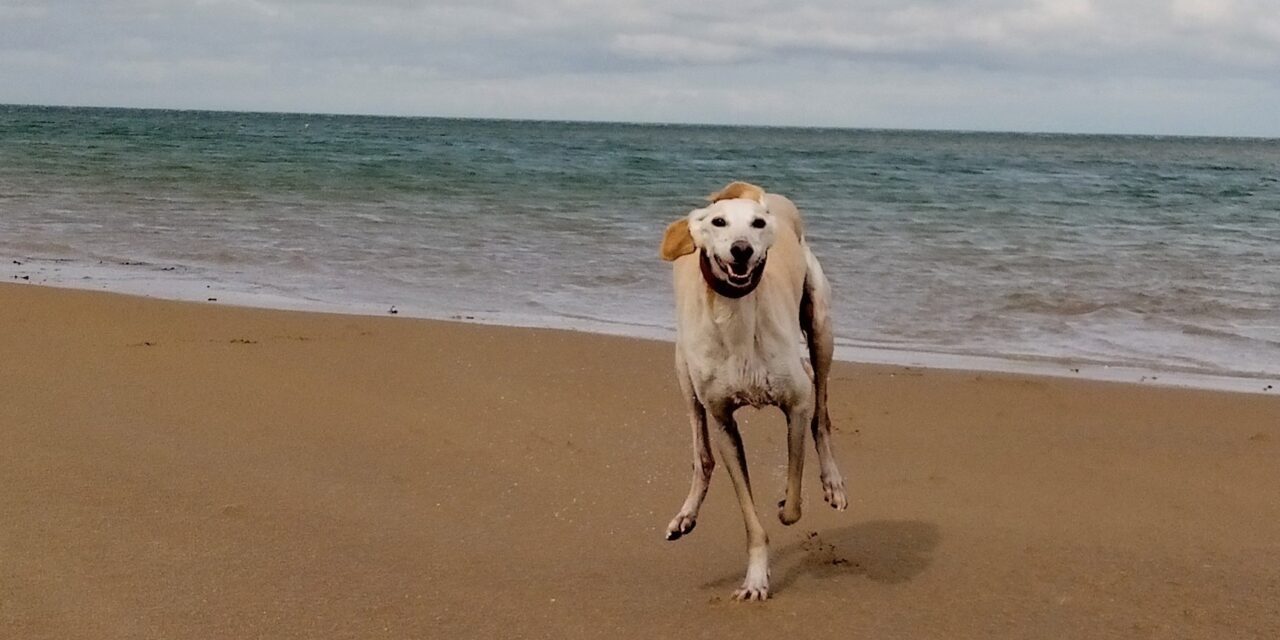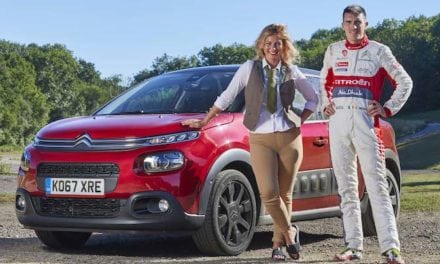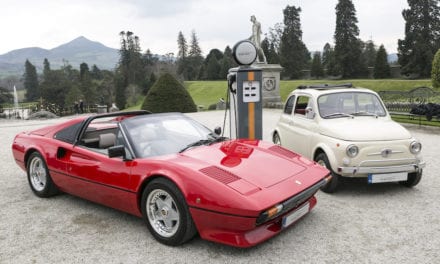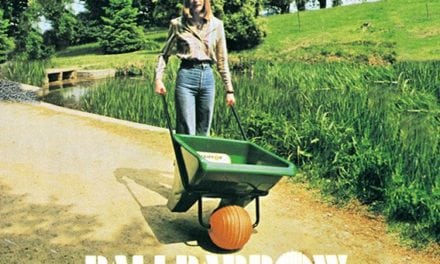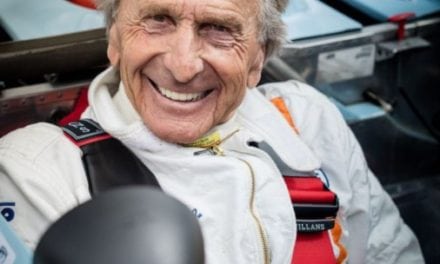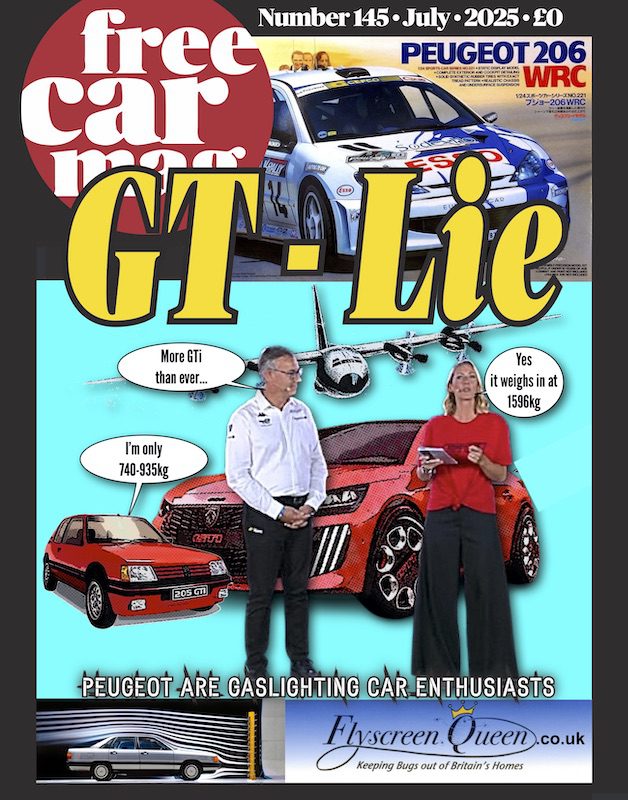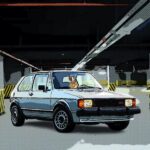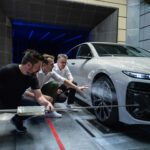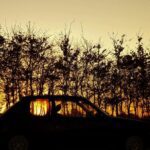STORY & PICTURES MATTHEW CORRIGAN
We took a last, wistful look across the fields, taking in the joyous sight of lambs gambolling irresponsibly in the spring sunshine. Beyond lay the ocean, a benign blue line in stark contrast to the towering, angry waves that had spent the first day and night of our stay there hurling themselves remorselessly against the rocky shoreline. Time to go home.
Saturday morning. The end of a short break, far away from the pressures of life. All too soon it would be back to the dreary business of deadlines, interminable Teams meetings and wondering if that snatched mini holiday had ever actually happened.
It would have been quicker to head for the motorway but there was no particular reason to hurry. Besides, doing battle with the ugly, litter-strewn cart tracks that pass for the nation’s primary road network is always an unpleasant and stressful experience. No, today’s plan was to stay off the beaten track. By taking the road less travelled we would extend our vacation, making the journey a part of the experience. There was plenty still to see.
With the coastline never far away, we meandered in a vaguely north-easterly direction. Behind us, the April sun steadily climbed, painting golden highlights across the rolling, verdant landscape. A patchwork of lush green fields unfolded, punctuated only by an occasional rust-coloured rectangle wherever a farmer’s plough had revealed the rich, red earth for which this part of the country is known.
Sometime later we happened upon a village. It was the sort of place where, had we been abroad, we would have stopped to stretch our legs. So that was what we did, ambling into a roadside farm shop in search of something to supplement the picnic we had packed. The café was full. Locals or itinerants like us – who knew – fortifying themselves for the day ahead. Everyone seemed to be smiling and carefree. Maybe it was the happy conspiracy of their little-known secret, maybe it was just the sun.
Avoiding larger towns, we travelled on. Our pace was leisurely, unhurried. On occasion, a single-track railway appeared alongside the road. Sprinkled along the way, tiny station halts with fairy tale names flashed briefly by. It was easy to imagine a quaint little steam engine toiling slowly down the line but alas, there were none in evidence.
Somewhere high above a bay – I know not which – we paused for lunch. From this vantage point we watched as an endless succession of long white waves rolled lazily onto a wide, deserted beach. Ground-nesting birds hunkered down in the fields as we ate, watchful against a floating buzzard that hungrily patrolled the cerulean sky.
Suitably fed and watered, we turned inland. Rolling on, the landscape began to change. Distant mountains rose as we climbed through the hills. Some years ago, red kites had been reintroduced here through a conservation programme and the birds have thrived. We watched as they danced and wheeled through the air. Suddenly, one of them peeled away and fell from the sky, diving on carrion by the edge of the road. Entirely unconcerned by the presence of humans, the creature was apparently happy to co-exist.
At roughly the halfway point we stopped once more, a comfort break in a visitors’ centre that clung to the side of a steep, wooded valley. Here, there were signs warning of sudden aircraft noise. We were in the middle of a low-flying training area, where the unwary might be startled by the sudden roar of a military jet. Families with children and dogs mingled with climbers and walkers. Entirely absent were the harried expressions and frenetic pace we’d have found in a motorway service station.
On the road again. Skirting the mountains, we passed through a market town. Several colourful motorbikes appeared, as did a beautifully restored Ford Escort Mexico, enthusiasts at last able to enjoy some warm, dry weather. By now, people were starting to sit outside the pubs, tables filling with late afternoon beers.
Not far now. Just one more county to cross. With home drawing ever closer, the afternoon melted imperceptibly into evening. I began to reflect. It had been a good day. We had covered a large distance at a pace dictated by ourselves. Away from the major conurbations and the high-speed intercity routes, the UK is still a very beautiful country. For those few short hours, I felt almost free.
Cars do that. They open up a world that would otherwise be hidden and allow us to explore, to broaden our horizons. There is simply no other vehicle available that would have made that journey possible. Not one.
But the private automobile has fallen out of favour. Just yesterday, I saw an angry exchange on Twitter, in which another road user referred to drivers as “Car gammons.” In the rigid world of the pious, there is no room for compromise. Cars are bad. Those who drive them are bad. Routinely castigated by the bien-pensants who seem to be in charge of every aspect of our national life, those who wish to enjoy the freedom cars afford are rapidly becoming outcasts.
Thanks to relentlessly pushed and – let’s face it – bigoted metropolitan attitudes and to various punishing political interventions, all of which have been debated ad nauseam, the era of the car is drawing to a close. Currently, the average cost of a new car in the UK is approaching fifty thousand pounds, considerably more than the average wage. For cars, it is already too late. It is over. Very soon now, it will not be possible to buy a new car with an internal combustion engine and the alternative, well, isn’t.
We are about to take a backwards step, deliberately narrowing our horizons. Like no other form of transport on the planet, cars once set us free. I shall miss them when they are gone.

